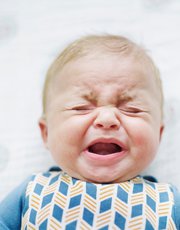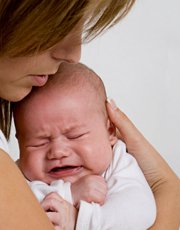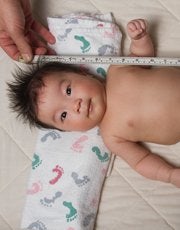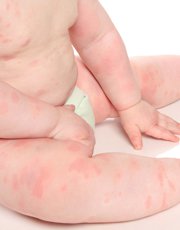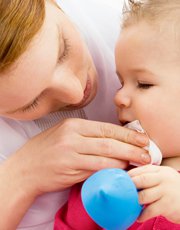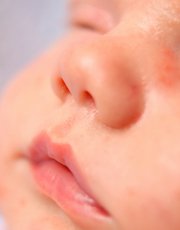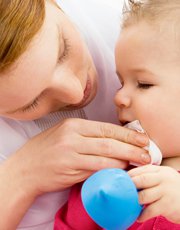SYMPTOM: WHEEZING
What is baby wheezing?
Baby wheezing, much like it is in adults, is a high-pitched, whistling sound, which happens when the small airways become narrow, making it difficult for a baby to breathe. It is a common problem in babies and, in general, children and babies wheeze more than adults because of differences in the size of their airways.
Baby wheezing usually happens when they breath out, rather than when your baby breathes in. Lots of things can make it sound like your baby is wheezing, such as tiny bits of mucus that can create a short whistling noise whilst your baby breathes, for example. Though many things can make your baby sound like they’re wheezing, they may not always be wheezing and it can be hard to tell a wheezing sound without a stethoscope.
Why is my baby wheezing?
Food allergies
A food allergy, e.g. Cows’ Milk Allergy (CMA), or other allergies, such as to dust or pollen can cause your baby to wheeze.
Asthma
A chronic disease such as asthma can cause your baby to wheeze. This is more likely if a baby’s parents smoke or have a history of asthma themselves, or if the baby’s mother smoked when she was pregnant. It is more likely to be asthma when your baby has continual wheezing episodes.
Illness
A respiratory tract illness or a cold virus can also cause your baby to wheeze. This is especially common in winter months as your baby can catch a virus and become congested.
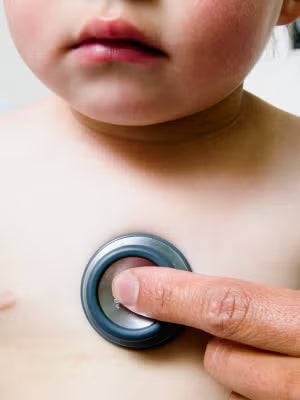
Could it be Cows’ Milk Allergy?
Baby wheezing is a common symptom for babies with CMA. Up to 30% of babies with CMA may have wheezing as a symptom.
Babies with CMA usually experience more than just one symptom and these symptoms can be very different from one another.
If you think that your baby has wheezing or is making wheezing sounds, it may be CMA. You may have even noticed other symptoms (besides wheezing, such as vomiting, swelling, rashes, and inconsolable crying), which may affect other parts of your baby’s body.
For a simple and easy way to understand the symptoms associated with CMA, you can use our symptom checklist or symptom diary to track symptoms.
This will allow you to select all the symptoms that your baby may have that may be cows’ milk-related. You can then discuss these with your doctor.
Treating baby wheezing
There are a few things you can do to help alleviate the symptoms of baby wheezing. These include:
- A humidifier - this will add moisture to the air. This is particularly good if your baby is congested from a cold or other virus
- Bulb syringe - a bulb syringe device can help suck some of the mucus out of your baby's nose. This is only helpful if your baby has a cold or other virus
- Hydration - If your baby is wheezing due to an infection, it’s important to keep them hydrated. They will need plenty of liquids
In any case, if you have any doubts or concerns about your baby’s health, you should always seek advice from a medical professional as soon as possible. The information on this website should not replace medical advice from a medical professional.
